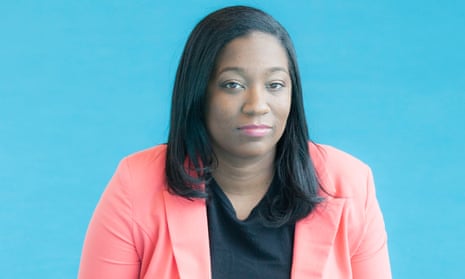Brit Bennett, 30, was born and raised in southern California. She attended Stanford University and earned an MFA in fiction at the University of Michigan. Her acclaimed first novel, The Mothers, was published in 2016, when she was 26. Her follow-up, The Vanishing Half, has spent the past three weeks in the top five of the New York Times bestseller list and the screen rights have been optioned by HBO in a seven-figure deal.
HBO had to outbid 17 rival TV companies in the race to adapt your book for the screen. How does that feel?
Last week was truly the wildest week of my life. It was my birthday week, so I’ve never been sent so many bottles of champagne or bouquets of flowers in my life, and probably never will be again.
And that was on top of your book debuting at No 1 in the NYT bestseller list. What were you doing when you heard the news?
It was maybe 5 o’clock in the evening and I was just sitting on my couch, and my editor called out of nowhere. We were optimistic, but I never imagined that. The people who are No 1 are household names, like Stephen King!
Describe The Vanishing Half.
It’s a story about twin sisters, Desiree and Stella, who decide to live their lives on opposite sides of the colour line – one as a white woman and one as a black woman.
Why do you think it is resonating right now?
I think there’s a larger social context into which the book entered the world. It explores racial identity at a time when people are really eager to read and engage with conversations about that, which is true all around the world as you see with these protests in all these countries.
How do you feel about the tone and style of your writing being compared to novelists such as James Baldwin and Toni Morrison?
It’s an honour to be mentioned in the same sentence as two of our finest writers ever. They are woven into my DNA. It feels as surreal as I think you’d imagine.
How did your mother’s upbringing in the Jim Crow south inspire the novel?
She told me about a town she remembered hearing about when she was a child, where everyone intermarried so their children would just get lighter and lighter. A town that was so invested in lightness that it wasn’t just a matter of preference, it was something that was almost genetically engineered. I started to think about what it would be like to live in that town, to subscribe to that ideology, to reject that ideology, and then to actually be dark-skinned in a place like that.
Was the incendiary political context of 1968 something you wanted to explore as well?
My mom left her small town in Louisiana and moved to DC the week Dr King was assassinated, and it was the first time she’d ever been anywhere. She talks about being in the cab and the cab driver being the person to relay this news. I just love that tension between the big historical moment and the smaller emotional moment.
What is the most indispensable piece of wisdom that your mum or dad has given you?
My dad often says that being right is overrated.
How has it felt to see your 2017 essay about police brutality, I Don’t Know What to Do With Good White People, do the rounds again following George Floyd’s death?
At the time I think it felt like a moment of sheer hopelessness, that we’re gonna watch this endless loop of black death and there will be no consequences for it. It’s always like that when it starts to recirculate, but seeing so many people on the streets in the middle of a pandemic, to see people willing to really put their lives on the line, and to see this being so multiracial – that’s been gratifying to see.
What’s been bringing you joy in this moment of unrest?
I just started watching the new Michaela Coel show [I May Destroy You]. I love Chewing Gum, I’ve thought she was a genius for a long time.
How has your lockdown been?
I’ve been in quarantine by myself in Brooklyn since March, so I’ve been slowly descending – you know, deteriorating a bit in the solitude.
What has been the best thing about living alone in this time?
Nobody getting on your nerves except for yourself! I am very much introverted by nature, so I would have felt much worse if I were constantly trapped around people this whole time. For me, it’s been a very productive quarantine. I’ve been able to channel my virus-anxiety into working.
Do you think of yourself as an anxious person?
I have a pretty laid-back demeanour, I’m Californian, so nobody really reads me as anxious. But I had the anxiety of being in New York and the virus and not wanting to get sick or wanting the people I love to get sick, and I also had this career anxiety of what’s gonna happen with this book coming out in the middle of a pandemic and is anybody going to read it?
You just turned 30. How did you celebrate?
I was supposed to go to Napa with my friends to have this wine-tasting weekend which was obviously derailed by Covid, so I had a virtual wine-tasting. They delivered a massive amount – I mean, I don’t even know how many bottles, via one of these apps. So now I have truly an obscene amount of wine in my apartment for me, by myself.
